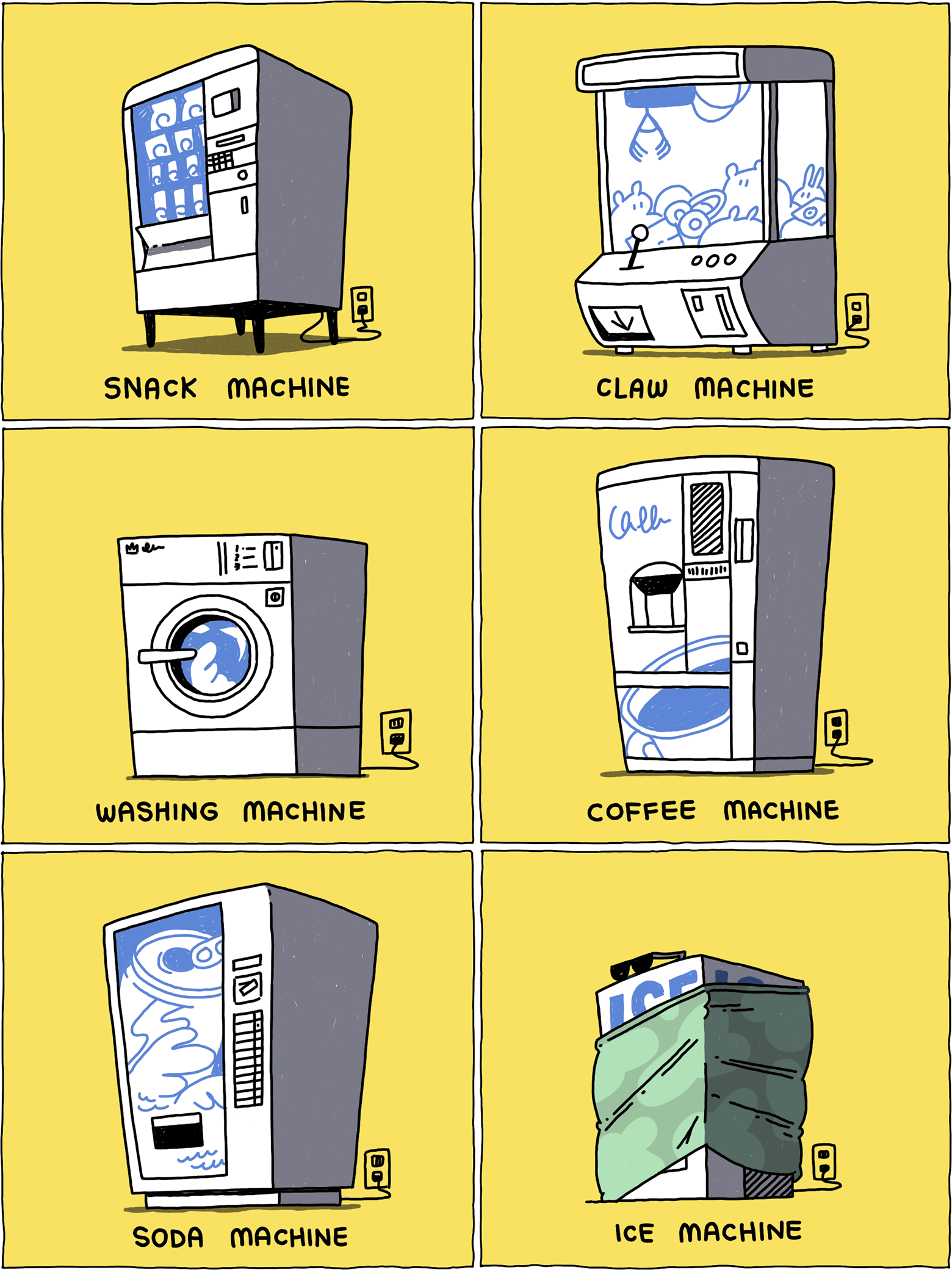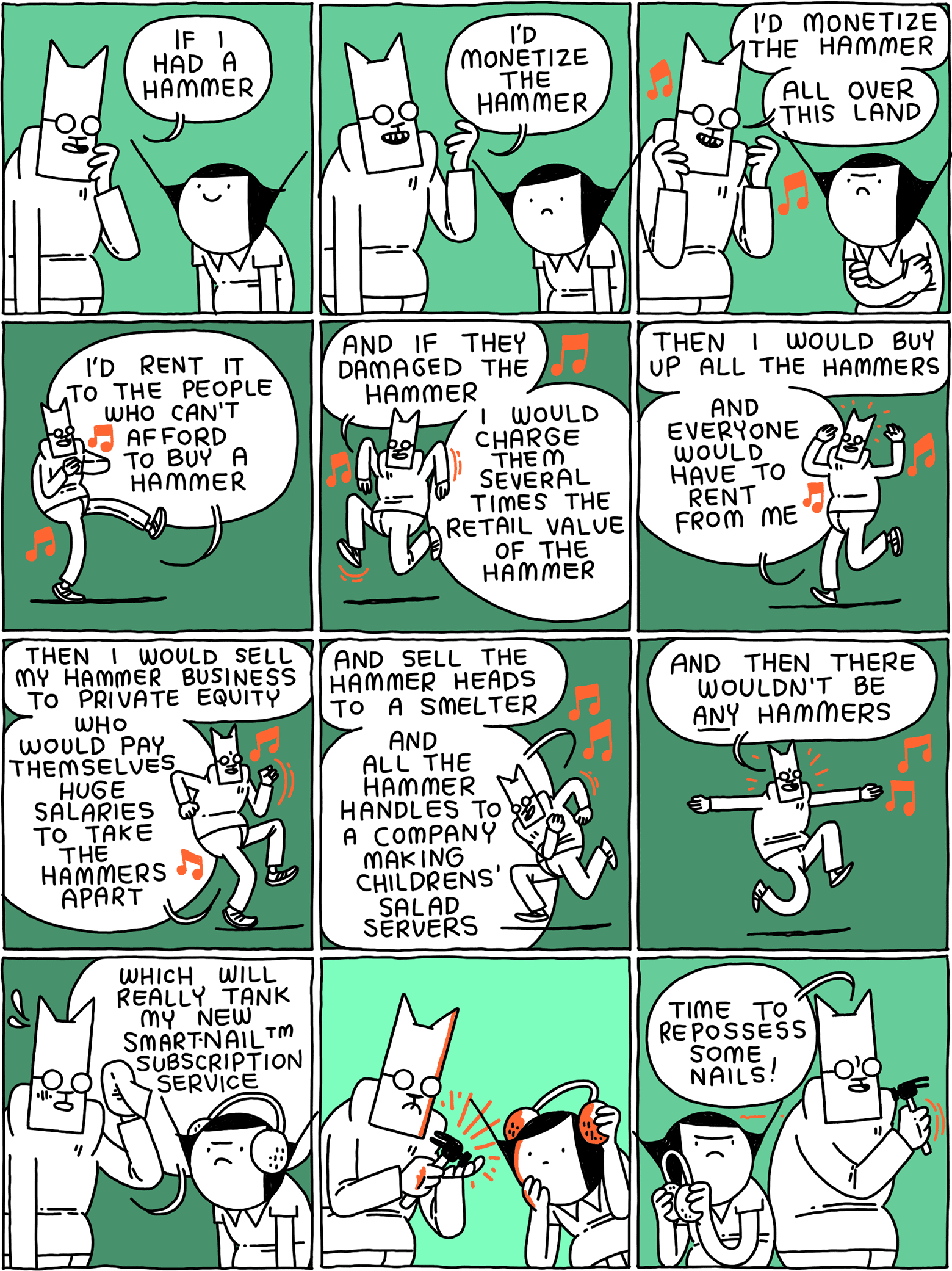First, a couple of quick plugs!
I have a novel coming out in August called Lessons in Magic and Disaster. A trans witch decides to bring her grief-stricken mother back to the world the only way she can think of: by teaching her mom to do magic. It’s my homage to A.S. Byatt’s Possession as well as all my favorite books about complicated magic and even more complicated families. You can pre-order a signed/personalized copy from Green Apple — and if you’re in Canada and pre-order before July 20, you can get a signed bookplate from Cross & Crows in Vancouver. And if you pre-order anywhere, please send me your receipt and I’ll give you a hefty glimpse of the sequel to All the Birds in the Sky. (Details here.)
Also! I’m bringing back my reading series, Writers With Drinks. We’re doing a special event next Saturday, July 12, at Strut in the Castro featuring M.M. Olivas, June Martin, Natasha Muse, Alex Hanna and Lio Min. And then on Aug 14 in Seattle, we’re featuring Becky Chambers, Andrea Hairston, Darcie Little Badger, Annalee Newitz, Cecilia Tan and me. (RSVP required — please buy a ticket here.)
I don’t want to write about selfish or cruel heroes
Lately I’ve been working on a couple of brand new novels that I hope to sell later this year or early next year. I've written some chapters, but I decided to go back and do a bit more outlining and brainstorming before I can keep moving forward.
(Side note: I hate the plotter/pantser dichotomy, the same way I hate all false binaries. Every writer is both plotter and pantser! There is no way to not be both! It’s a spectrum, dammit!!!)
Where was I? Oh yeah. One of the big stumbling blocks with both of these new novels has been making sure I really understand my characters and where they're coming from. Sometimes, I can figure out a lot of this stuff on the fly — by seeing how these people react to different scenarios, or what they end up chasing after. But in the case of these novels, I found that I needed to hash out my main characters, and figure out what motivates them.
I really like a character with a strong motivation — someone who wants something, or believes in something, that will carry them forward so they’re not just swept along by the plot. When I wrote the opening chapters of All the Birds in the Sky, I tried to make readers bond with Patricia and Laurence by giving them strong goals right off the bat. Patricia really, really wants to save that wounded bird, and protect it from her evil sister. Laurence really wants to go see a rocket launch and escape from the numbing conformity imposed on him by his parents. Hopefully, you end up rooting for them to achieve those goals, and this leads to you caring about them in general.
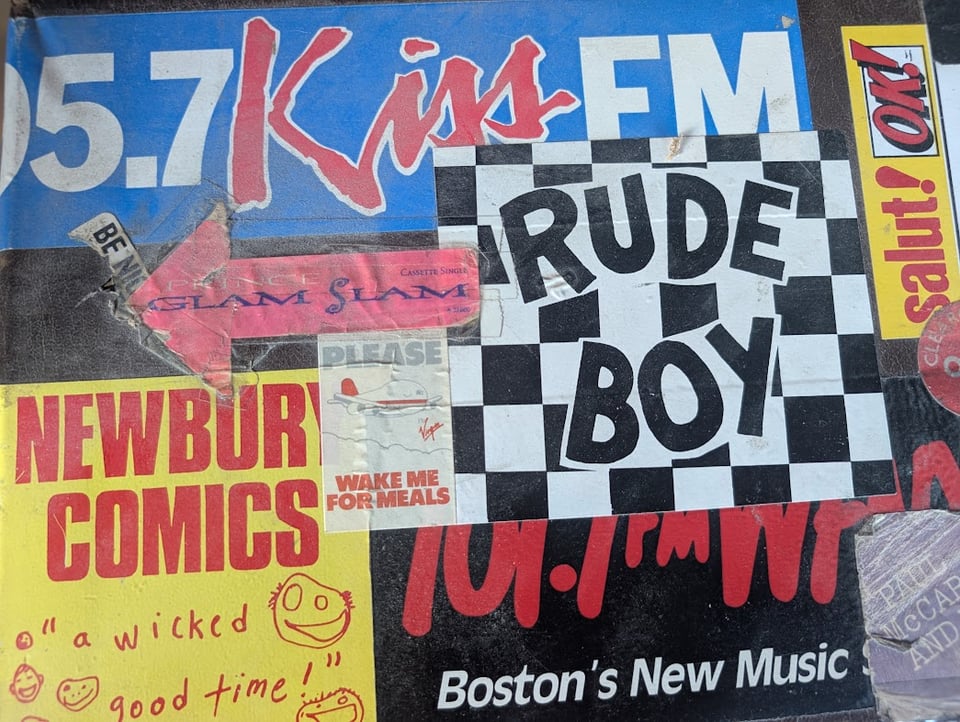
So I've spent a lot of time lately bashing away at the motivations for the major players in these two brand new novels. Do they want fame? Power? Revenge for some past injury? Are they seeking to reclaim a lost family legacy? Are they desperately in love? Even if a character doesn't want a MacGuffin, or some prize that they’ll crawl through barbed wire to get to, it's helpful if a character has an overall sense of what they want from life.
(It’s certainly possible to care about characters who don't care about anything, but I sometimes find it harder.)
Pretty much across the board, I’ve found myself gravitating toward characters whose motivations are basically altruistic. That is to say, they want to do good in the world. They want to help people who are hurting or in trouble, even total strangers. They want to be kind and generous, even when the world makes this really challenging.
Writing an altruistic character is a form of wish fulfillment and escapism for me — because lately, I feel utterly horrified at the systemic evil in the world, and I desperately wish I could do more to help everyone who is being ground up by the gears of exploitation and hatred.
I keep thinking about when I was a college student, and one of my professors told me that someone who is committed to a philosophy of total hedonism could still be generous and kind — because helping others is one of life’s great pleasures. (I think this was part of a conversation about Samuel Johnson, maybe?) At the time I felt like this was a bit of sophistry — sure, doing good is a form of enjoyment, but it’s not the same as eating really excellent pizza. But as time has gone on, I kind of see his point: I like pizza, and taking long walks, and other stuff, but being able to make a real positive difference in someone else’s life does feel extremely good.
And because there’s only so much I can do for others without burning out — I speak from experience, unfortunately — being able to help a lot does feel, weirdly, like an escapist fantasy. In some ways, it’s better wish fulfillment than having a whole dang castle.
As you can probably tell, I also think of writing benevolent characters as a way of advancing a theory of human nature. Many powerful people seem to believe that humans are intrinsically selfish, and it’s natural to take satisfaction in keeping other people down. (Especially people who are “othered” in various ways.) I think the need to reject this idea is definitely one reason for the popularity of cozy fiction, and it’s one reason why I'm increasingly leery of the traditional three-act structure. Many of us want to believe that people can be better, that kindness can win out — and lead to more kindness, in a virtuous cycle.
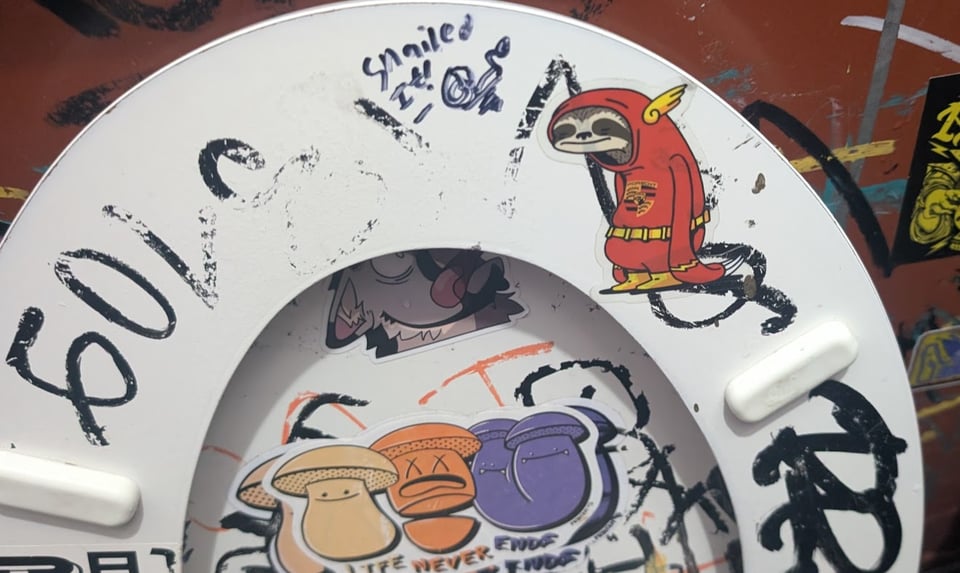
People can create huge messes with the best of intentions. You can set out to help someone else and end up making their life worse, not better, because you didn’t bother to ask them what kind of help they needed or wanted. I have a huge soft spot for characters who rush in to try and make a situation better, only to misunderstand and create a bigger problem. (Or who do the things that they know would make them feel better, but which end up making someone else feel worse.) In other words, there are plenty of stories to be told about a person who earnestly wants to help.
And as much as noble motives go really well with hedonism, they also go incredibly well with anger — at injustice, at unnecessary suffering — and as I’ve said before, anger is one of my favorite things in the world.
A while ago, I did a post on Bluesky and Tumblr which went mega viral in both places and keeps popping up again:

On Bluesky, I followed this up by clarifying that I do love a sympathetic villain — someone whose motivations are complicated and kind of relatable. But I also love the kind of villain that Shakespeare used to specialize in, someone who is just a hateful, cruel piece of shit. I'm still the person who wrote Bianca in The City in the Middle of the Night, as well as Marrant in the Unstoppable trilogy. (Not to mention Jeremy in “Don’t Press Charges.”) And I can’t help noticing that a heck of a lot of real-life people seem to be taking immense pleasure in committing unspeakable atrocities against the people they despise.
It may well be true that every villain is the hero of their own story — but in many cases, it’s a dark, ugly story about greed and domination.
(Years ago I wrote a novel that never saw print, featuring one character who’s a selfish monster. At one point, people try to confront him about his behavior, and he says, “Whatever, I went to Princeton. I know all about the Banana of Evil.” It turns out that he basically slept through a lecture on Hannah Arendt and nobody can convince him that there’s not a type of fruit called the Banana of Evil. This still makes me giggle.)
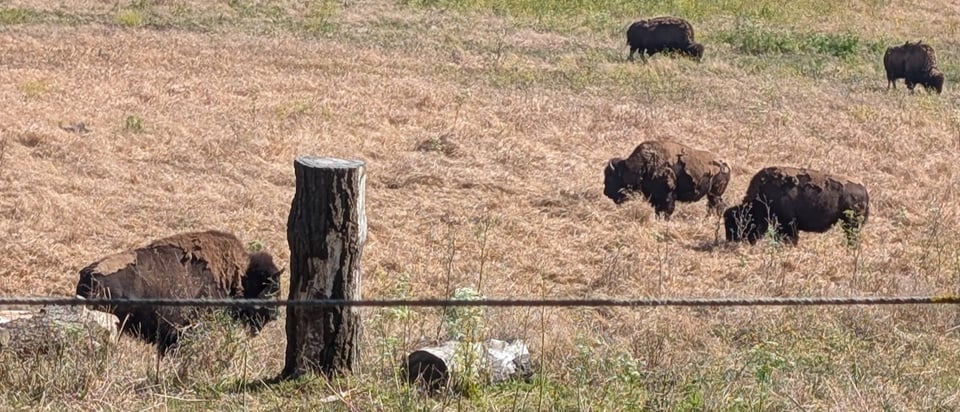
Anyway, as part of my recent hunger to write stories about altruists, I’m not really writing villains lately. I might throw in the occasional minor antagonist, meaning someone who happens to stand in the protagonist's way but isn't necessarily acting out of malice or even trying on purpose to thwart the protagonist's goals. (I was very keen that All the Birds in the Sky not include any villains, but Theodolphus Rose kept resisting my attempts to cut him out.)
My current vibe is that I will include reprehensible people in my books — but they won't be major characters.
Case in point: Lessons in Magic and Disaster features a couple of characters who are bigoted assholes, and neither of them gets much “screen time.” They show up long enough to inflict some damage, and then they're gone again. The book isn’t really about them, and the only reason they really matter is because my characters struggle with what to do about them. They could almost be natural disasters. If I’d wanted to develop them as characters, I would have written a very different book, and it might have been one about them learning to acknowledge the harm they’ve done and try to make amends — which would be an interesting story to tell someday, for sure. It’s just not the story I was setting out to tell this time around.
I’ve written a fair number of fascists over the years, and for the most part I’m comfortable with not humanizing them or softening my portrayal of them. At the same time, I want to acknowledge that they exist and can do real harm.
Years ago, I went to a philosophy conference where a number of people delivered papers about human nature, focusing on ethics and what it means to be a virtuous person. One paper lives forever in my mind: Loren Lomasky, a professor from UVA, delivered a paper arguing that we need to account for the existence of malevolence. Sometimes people want to hurt each other out of spite, out of anger, or just because they feel like it. As much as we want to think about benevolence is a huge part of human nature, we need to reckon with malevolence — or it will reckon with us.
The way I'm feeling right now, I want to write primarily about benevolence, and the challenges as well as the rewards of trying to do good in a messed up world. I also want to acknowledge that malevolence is real, but I don't feel the need to wallow in it. I see plenty of malevolence in the world right now, and depicting its opposite feels like an imaginative lift as well as a deeply satisfying rebuke to the worst theory of who we are at our core.
Music I Love Right Now
I have a brand new obsession, and her name is Nik West. She’s a funk vocalist and bass player, who’s gotten the seal of approval from none other than Larry Graham. I think I might have seen one of her videos in the past, but she got my attention when she released a brilliant cover of Graham’s song “Hair” — which is a hard song to do justice to, y’all. She also released a live album earlier this year, called Little Big Beat Studio Live Session, and I cannot stop listening to it. Her bass virtuosity is utterly thrilling, and she’s also a phenomenal songwriter. That live performance is on YouTube as a video, and I encourage you to check it out now. (Literally the only thing I don’t like about this video is the shots of the audience sitting politely in their folding chairs instead of getting up and shaking their booties. What is wrong with these people???)

